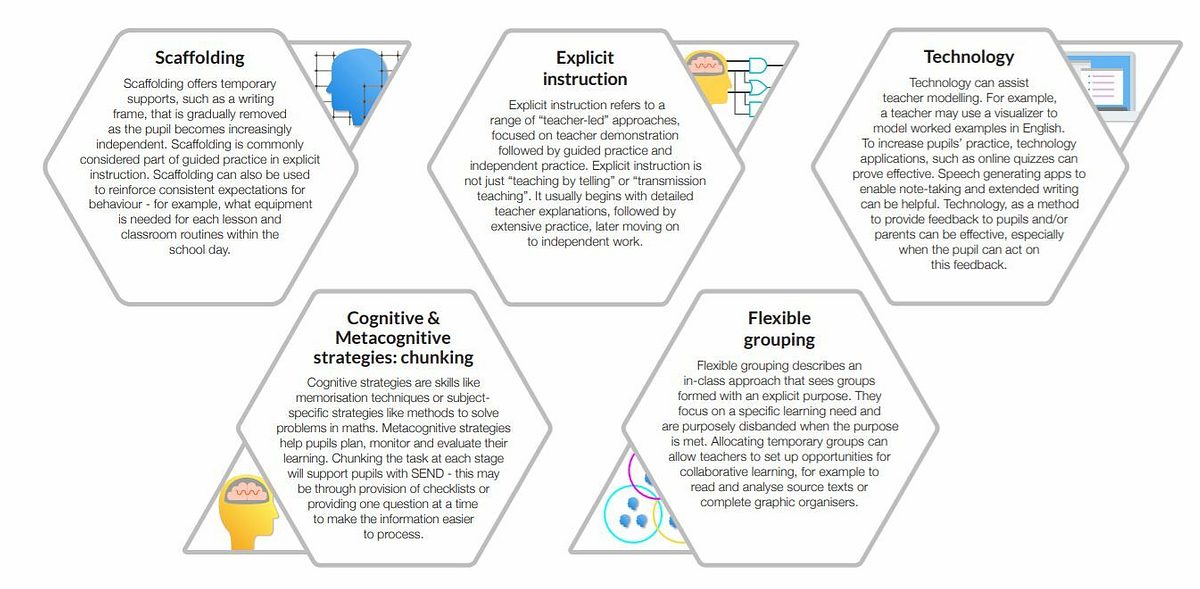Special Educational Needs (SEND) Provision
A key principle which underpins the ethos of Norton in Hales Primary School is that all children are valued and entitled to equality of educational opportunity. We value and embrace each child’s individual needs and endeavour to meet their needs to ensure that they enjoy, succeed and thrive within our nurturing school.
To read the full Norton in Hales CofE Primary School Local Offer (SEND Information Report) please click HERE. Our Local Information Report provides details of how we support children within the school and we hope it will answer many of the questions that parents and carers may have, however we would also encourage you to discuss any concerns or queries with us directly.
If you have any queries about our Special Education Needs provision or any specific queries about your child's Special Educational Needs, our SENCo's Mrs Theresa Buckley or our Head Teacher Mrs Angela Alkureishi, will happily answer any further questions you may have. Please contact the school office to arrange an appointment or email buckley.t@nortoninhalesprimary.co.uk
Identification of Emerging Needs
The following may be actioned
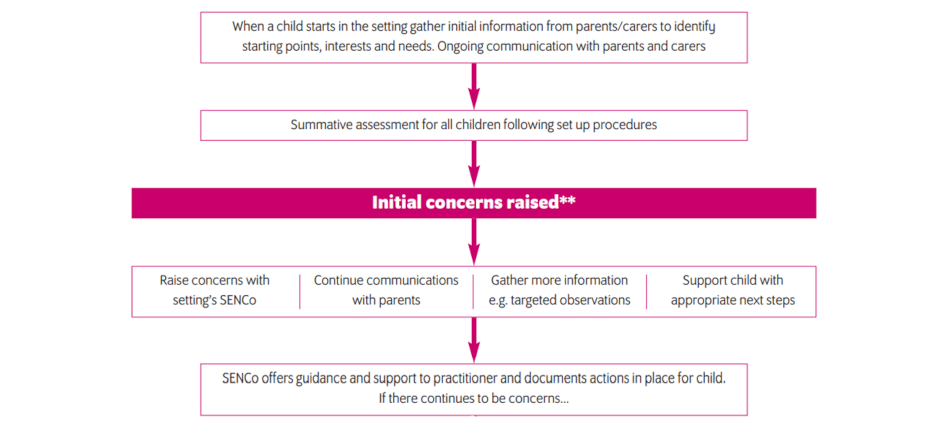
Actions for SENCo
Collaboration with parent, teachers or key person
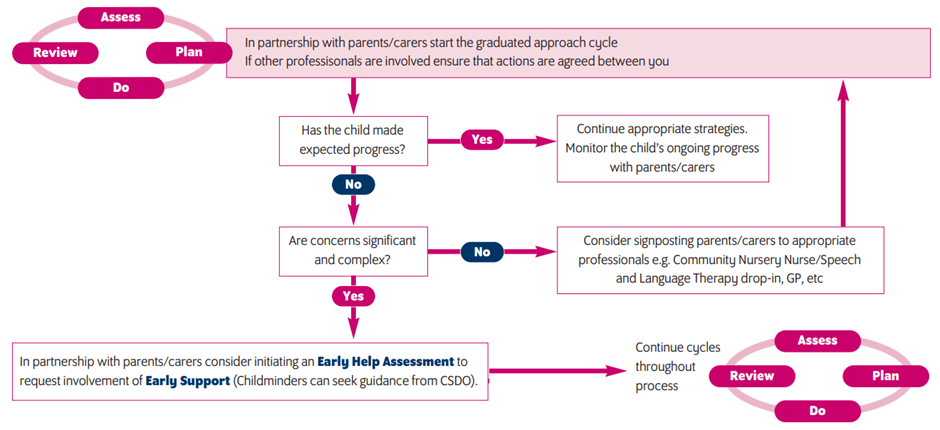
Possible concerns that may require further investigation
- Delayed Development in the Prime areas through EYFS summative assessment.
- Concerns relating to specific difficulties e.g., hearing, speech, and physical skills.
- Developmental assessment is not as expected e.g., splintered, patchy, spikey or shows regression.
- Significant concerns about behaviour.
Graduated Approach to SEND
Support for children with emerging needs or SEND should be through the graduated approach. This is a four-part cycle leading to a growing understanding of the child’s needs. It supports practitioners to identify the actions that need to be put in place to ensure the best outcomes for the child.
The graduated approach (Assess, Plan, Do, Review) should be time limited but can be variable in length, dependent on the stage of the identification and level of need e.g., 6 weekly, half termly, or termly etc.
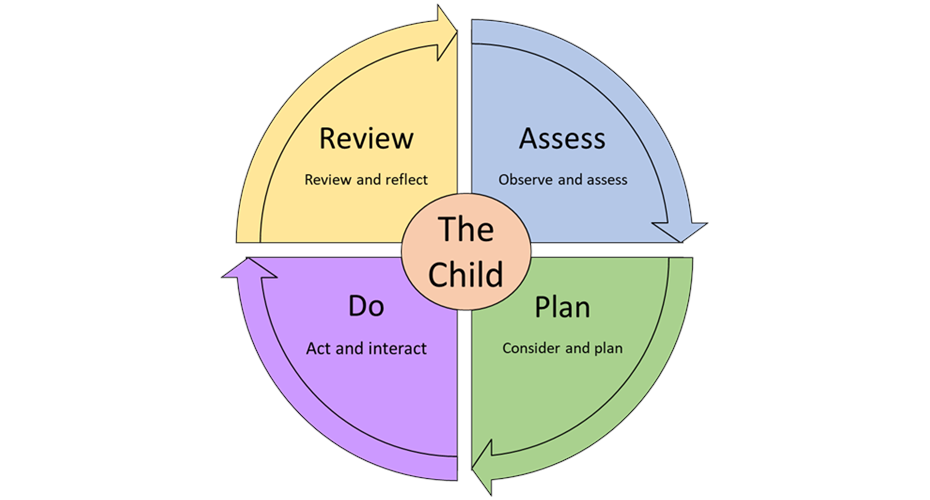
Four Areas of Need
The Four Broad Areas of Need within Special Educational Needs are: Communication and Interaction; Cognition and Learning; Social, Emotional and Mental Health and Sensory and/or Physical needs. In school, we work with parents, the children, local authority and outside agency professionals to support children within these four areas to be the best they can be.
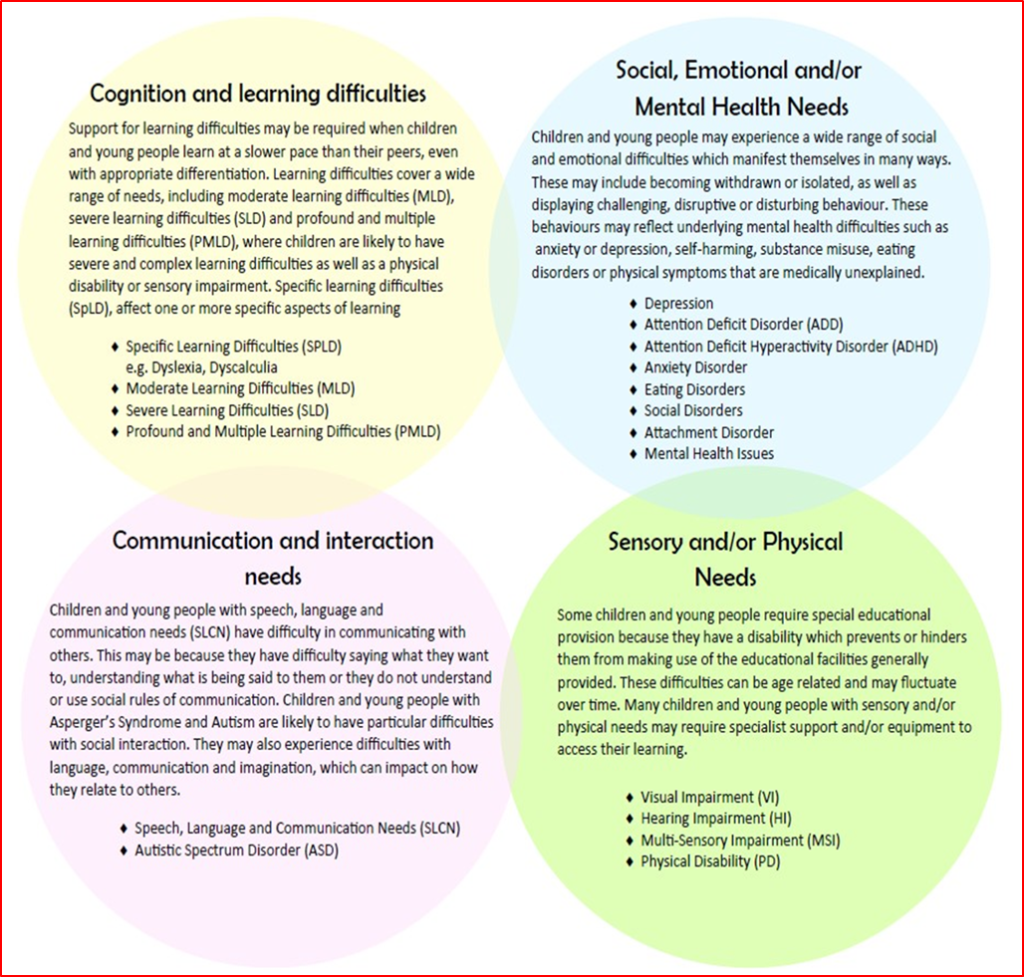
Communication and Interaction
Children with Communication and Interaction needs have difficulties in communicating with others. This can take the form of not understanding what is being said to them or challenges in saying what they want to; not only verbally but in the selecting of words. A child may also find it tricky to recognise the social rules of communication. Children with Communication and Interaction needs may need support with one, some or all of the previously mentioned areas. Their needs can also change over time. This area can also be referred to by professionals as Speech, Language and Communication Needs (SLCN).
Cognition and Learning
Despite adapted teaching metho ds used in lessons and class based support, some children may have difficulties in their learning that result in them learning at a slower pace. Cognition and Learning needs cover a wide range and these are categorised into: Moderate Learning Difficulties (MLD); Severe Learning Difficulties (SLD); Profound and Multiple Learning Difficulties (PMLD) and Specific Learning Difficulties (SpLD).
Social, Emotional and Mental Health
Children and young people may experience a wide range of social and emotional difficulties which manifest themselves in many ways. These may include becoming withdrawn or isolated, as well as displaying challenging or disruptive behaviour. These behaviours may reflect anxiety, uncertainty, anger or another underlying cause.
Sensory and/or physical needs
Some children and young people require special educational provision because they have a disability which prevents or hinders them from making use of the educational facilities generally provided. These difficulties can be age related and may fluctuate over time. Many children and young people with vision impairment (VI), hearing impairment (HI) or a multi-sensory impairment (MSI) will require specialist support and/or equipment to access their learning.
The EEF’s ‘Special Educational Needs in Mainstream Schools’ guidance report was published in March 2020 and offers five key recommendations to support pupils with SEND, alongside support to evaluate settings and strategies to implement.
‘
The EEF states that all pupils have access to high quality teaching’ and outlines five teaching strategies (Five a day) to consider for use with pupils with SEND:
At Norton in Hales Primary School staff will use the following strategies to reduce barriers to learning:
- Scaffolding
- Explicit Instruction
- Technology
- Metacognitive Strategies
- Flexible grouping
School Provision Map
The document attached provides details of how children with different types of needs can be supported within the school
Norton In Hales School Provision
Additional Information
Norton In Hales SEN information report 2025-2026:
Our SEN Information Report 2025-26
Shropshire Council Local Offer information:
http://shropshire.gov.uk/the-send-local-offer/
You can also find information on the Shropshire Local Authority website:
www.shropshire.gov.uk/special-education-needs-and-disability-(send)
Contact Number: 01743 254366
Parent/carers and young people can also access support from an external agency called the Information Advice Support Service in any matters related to special educational needs and disability.
https://www.cabshropshire.org.uk/shropshire-iass/
Contact Number: 01952 457176
Please follow the link below to see Spring events in Shropshire for parents and carers with children with Autism




